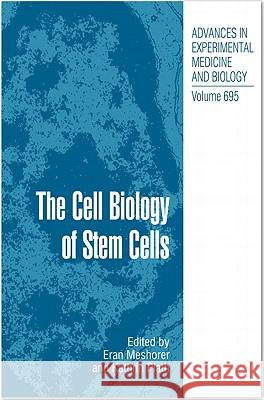The Cell Biology of Stem Cells » książka
The Cell Biology of Stem Cells
ISBN-13: 9781441970367 / Angielski / Twarda / 2010 / 229 str.
Stem cells have been gaining a lot of attention in recent years. Their unique potential to self-renew and differentiate has turned them into an attractive model for the study of basic biological questions such as cell division, replication, transcription, cell fate decisions, and more. With embryonic stem (ES) cells that can generate each cell type in the mammalian body and adult stem cells that are able to give rise to the cells within a given lineage, basic questions at different developmental stages can be addressed. Importantly, both adult and embryonic stem cells provide an excellent tool for cell therapy, making stem cell research ever more pertinent to regenerative medicine. As the title The Cell Biology of Stem Cells suggests, our book deals with multiple aspects of stem cell biology, ranging from their basic molecular characteristics to the in vivo stem cell trafficking of adult stem cells and the adult stem-cell niche, and ends with a visit to regeneration and cell fate reprogramming. In the first chapter, "Early embryonic cell fate decisions in the mouse," Amy Ralson and Yojiro Yamanaka describe the mechanisms that support early developmental decisions in the mouse pre-implantation embryo and the current understanding of the source of the most immature stem cell types, which includes ES cells, trophoblast stem (TS) cells and extraembryonic endoderm stem (XEN) cells.











